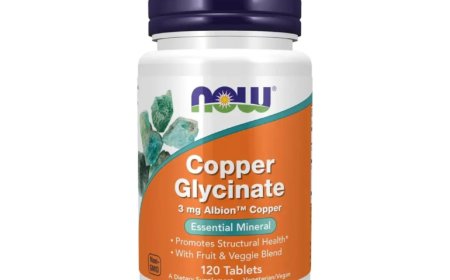The Many Uses of Maize Germ: Unlocking Its Full Potential

Maize germ, a vital by-product of maize processing, is often overlooked despite its incredible potential. Extracted from the innermost part of the maize kernel, maize germ is a powerhouse of nutrients and versatility. From food production to renewable energy, its applications span across industries. To make the most of its benefits, working with reliable corn germ suppliers ensures top-quality maize germ for various uses.
1. What is Maize Germ?
Maize germ is the reproductive part of the maize kernel that germinates into a new plant. Rich in oils, proteins, and vitamins, it is highly valued for its nutritional and industrial uses. The extraction process, whether through wet milling or dry milling, makes it available in different forms, such as oil or meal, depending on its intended use. This versatile ingredient has become a staple in industries ranging from food and cosmetics to pharmaceuticals and energy.
2. Top Maize Germ Uses Across Industries
a. Food Industry
Maize germ is widely used in the food industry for its high nutritional value. Maize germ oil, extracted from the germ, is popular for cooking and baking due to its light flavour and health benefits, such as being rich in vitamin E and unsaturated fats. It is also used in health foods and dietary supplements.
b. Animal Feed
Maize germ is preferred in livestock and poultry feed due to its high protein and energy content. It improves the overall nutritional profile, ensuring healthier growth for animals.
c. Cosmetic Industry
In the cosmetics sector, maize germ oil is a sought-after ingredient in skincare and haircare products. Its antioxidant properties help rejuvenate skin and promoting hair health, making it a favourite for natural beauty products.
d. Pharmaceutical Applications
Maize germ extracts are used in the production of medicinal and nutritional supplements. Its rich content of vitamins and minerals makes it a critical ingredient in promoting human health.
e. Renewable Energy
Maize germ is also gaining attention in the renewable energy sector. Its oil can be processed into biofuels, offering an eco-friendly alternative to traditional fuels.
3. Importance of Choosing Reliable Corn Germ Suppliers
The quality of maize germ is crucial for its performance across industries. Partnering with trusted corn germ suppliers ensures you receive consistent, high-grade products tailored to your needs. Reliable suppliers also provide transparency in sourcing and processing, which adds value to your business and end products.
4. Sustainability and Economic Benefits of Maize Germ Uses
Maize germs contribute significantly to sustainability by reducing agricultural waste. Its use in biofuels, biodegradable products, and eco-friendly packaging promotes environmental preservation. Economically, it supports multiple industries, creating jobs and contributing to the growth of the agricultural and manufacturing sectors.
5. Emerging Trends in Maize Germ Applications
Innovations in maize germ processing are opening new doors. From its use in biodegradable plastics to eco-friendly lubricants, maize germ is proving to be a game-changer in sustainable product development. These emerging trends showcase its untapped potential and promise a brighter future for industries that rely on maize germ.
6. Why Mittal Conezza is a Leader in Maize Germ Supply
Mittal Conezza has established itself as a trusted corn germ supplier known for its commitment to quality, sustainability, and innovation. By sourcing and processing high-quality maize germ, the company caters to the diverse needs of industries while maintaining ethical and environmentally friendly practices.
Maize germ is a hidden treasure with numerous applications that enhance industries ranging from food and cosmetics to energy and agriculture. Its sustainability and economic benefits make it an essential ingredient in modern manufacturing. By partnering with reliable corn germ uses like Mittal Conezza, businesses can unlock the full potential of maize germ and contribute to a more sustainable future.
What's Your Reaction?





















![Fortinet NSE5_FSM-6.3 Exam Dumps [2024 Questions] For Perfect Study](https://news.bangboxonline.com/uploads/images/202410/image_430x256_671f38c81c2a2.jpg)